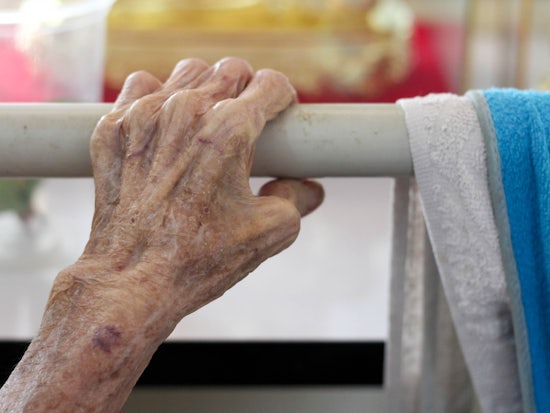Aged care quality in question once again
The quality of care received by older Australians in aged care facilities is once again rousing concern after a recent spot inspection of a Queensland facility by the Australian Aged Care Quality Agency (AACQA) revealed a number of serious breaches.

19 issues were allegedly identified in a spot inspection at a Bundaberg aged care home in December (Source: Shutterstock)
The December inspection of Blue Care Pioneer Lodge in Bundaberg identified that some “employee practices, facility processes and amenities” have fallen below several Accreditation Standards of the AACQA.
According to the Queensland Nursing and Midwifery Union (QNMU) there were 19 issues identified in the spot inspection, including failing to respond to a resident’s cries for help and underfeeding or failing to feed residents.
The QNMU refers to a Blue Care memo dated 11 December 2017 that states “an AACQA representative visited Pioneer Lodge on December 9 and found a resident hanging out of bed calling for help. After both verbal calls and the call button went unanswered, the AACQA representative sought and found assistance.”
QNMU also states that the Blue Care memo reported “residents weren’t showered, were left alone on the toilet for long periods of time and went underfed.”
Resident reports relating to food were also included in the memo, with residents telling the AACQA they were “regularly fed less than a child’s Happy Meal – with some meals consisting of just three nuggets and five chips”. Others reported the meals were so unappealing they were inedible.
According to the memo, residents reported that those who failed to eat independently were “often left unfed”.
QNMU Acting Secretary Sandra Eales says the situation is “unacceptable” and puts the issues down to the “slashing” of nurse numbers, leading to resident suffering as a result of “chronic understaffing”.
Blue Care Group Executive for Regional and Remote Services, Alan Wilson hit back at the claims staffing levels were to blame, instead saying the situation at Pioneer is “highly abnormal for Blue Care”.
“Previous claims that staffing levels at Pioneer had adversely impacted the provision and quality of care at the facility, are false,” he says.
“Pioneer’s staffing levels have always been either above or in line with Australian residential aged care facility averages.”
Despite shutting down claims of understaffing, Mr Wilson has apologised on behalf of Blue Care while also making note of a number of staff relating to the highlighted issues.
He says that it is “clear” several employees were “not fulfilling their duties” in accordance with Blue Care standards and expectations, adding that these matters are “now being dealt with”.
AACQA CEO Nick Ryan admits to conducting the review audit at the Blue Care Pioneer Hostel and Nursing Home services in Bundaberg in December, and says the report from this audit “will be available online from February”.
“As required under the Quality Agency’s regulatory framework, the assessment team provided Blue Care with a written report of major findings of the audit,” he says.
“This report is not the final audit outcome.
“Due process allows for the service to respond to the findings and the decision maker to consider any additional information.”
Mr Ryan adds that the audit report will outline findings against each oth the 44 expected outcomes of the Accreditation standards, with the Quality Agency publishing a decision on whether to re-accredit, vary or revoke accreditation of the services.”
Federal Minister for Aged Care Ken Wyatt reiterated that the findings are currently confidential and will be made public in February, but is taking the opportunity to highlight the importance of the quality of care within Australian facilities.
“The safety of older Australians is of paramount importance and the provision of quality care is non-negotiable,” he says.
The Minister also noted the role the new framework and taskforce will play in the future of aged care quality assurance, as well as addressing concerns over workforce related issues.
“The Department of Health has been working with the aged care sector to draft a new single set of aged care quality standards that focus on consumers and the outcomes they experience,” he explains.
“Regarding the important issue of aged care staffing, I look forward to the recommendations of a national taskforce currently preparing an aged care workforce strategy, to ensure the right mix of professional nurses, carers and other qualified staff, to provide for older Australians in care.”
The taskforce is due to report to Minister Wyatt by the end of June.










